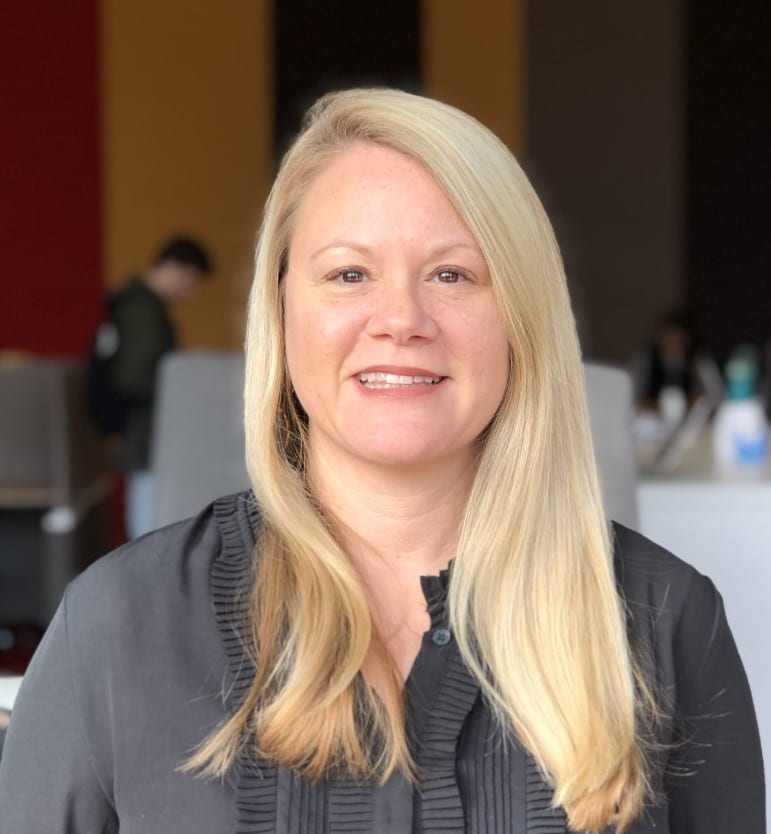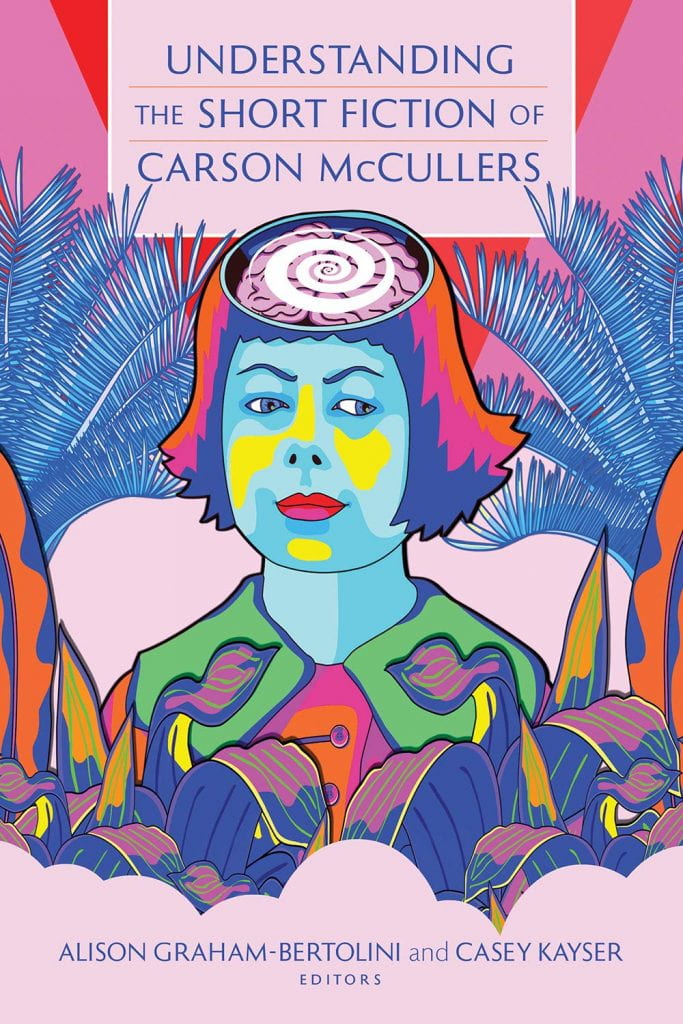
Casey Kayser is an Assistant Professor of English, specializing in contemporary American and Southern Literature and Drama, Gender Studies, and Medical Humanities. This fall, she successfully completed her third-year review for promotion and tenure. (Way to go!!!) She also was recently named the Director of the Medical Humanities Program. In our interview with her, below, Casey explains her interest in Southern Literature, provides a preview of the exciting graduate course she will be teaching this spring, discusses her ongoing involvement in and commitment to the Medical Humanities and Theatre in London programs on the U of A campus, and lists a few of the activities she does for fun and away from academia.
I know that, among other areas, you specialize in Southern Literature, specifically the writings of authors like Carson McCullers and Eudora Welty. Could you talk a little about what drew you to this area of research? In addition, what is one particular text in this area that you love to teach or write about, and why?
I took a Southern Women’s Literature class in my undergraduate years, with Dr. Carolyn Perry at Westminster College in Missouri, and fell in love with these writers, especially Carson McCullers and Lillian Smith. I think perhaps because I grew up in Missouri, a state that straddles status as southern and Midwestern and was split during the Civil War, I became interested in how we think about region and how it’s represented in literature. I love to teach and write about Carson McCullers’ The Heart Is a Lonely Hunter. In that novel, McCullers creates a beautiful portrait of a small town and the characters there, who are different from each other in significant ways—race, gender, age, (dis)ability, politics—but search for, and in some cases, find connectedness.

For spring, you are planning to teach a graduate course on “Illness and the Southern Writer” (which sounds amazing). What are some of the authors you’ll be covering, and what inspired you to develop this course?
We’ll be reading writers such as Charles Chesnutt, William Faulkner, Carson McCullers, Monique Troung, and Tennessee Williams, considering, in some cases, their personal experiences with illness, and how physical and mental illness and disability are represented in southern literature. Additionally, we will interrogate conceptions of the South as an “ill region,” metaphorically and literally. The idea for the course came out of my research on Carson McCullers and narrative medicine, and is an area I’m excited about exploring in the classroom and for future research.
Along with Trish Starks (History), Jonathan Marion (Anthropology), and Warren Herold (Philosophy), you serve on the Medical Humanities Minor Steering Committee and, in fact, have officially been named the Director of the Medical Humanities Program. You have also taught the Medical Humanities Colloquium (ENGL 3873) for many years to undergraduate pre-med students. What has been the most rewarding part(s) of your being involved in this area of interdisciplinary study?
It is very rewarding for me to teach the Medical Humanities Colloquium because it gives students a perspective so relevant to their future careers. It also has a service-learning component which deepens the learning and our connections, in the classroom together, but also with the community and through our service to agencies and people outside of University walls. Usually students engage in experiential learning through shadowing physicians and completing medically-relevant service work. Due to COVID-19, we’ve had to shift our focus and we are participating in an oral history project for the service-learning component of the course.
Our University/community partners, the University of Arkansas Libraries Special Collections and Arkansas Folk and Traditional Arts, have established a project to preserve the personal experiences of University of Arkansas students, faculty, and staff, and members of the larger community and state during the COVID-19 pandemic by conducting oral histories. Currently, my students are conducting oral history interviews with individuals about their medical and overall experiences with COVID via video recording. They are focusing on those with direct medical experiences with COVID, such as healthcare workers. It feels special to be able to contribute to this project and preserve what life is like right now for generations to come.

In addition to collaborating with faculty in other fields for the Medical Humanities program, you frequently travel to England over the summer with Shawn Irish (Department of Theatre) to co-teach the undergraduate Theatre in London course. Why, in your opinion, is a study-abroad program like this one so valuable to the undergraduate experience?
Traveling abroad just opens up our eyes to places, people, ideas, and cultures outside of what we have previously known, and that’s just so important. I think when you take a trip like this as an undergraduate, it changes and enriches how you come to your studies after that, and just your life in general. While Great Britain may not seem as different culturally from the United States as some other places, there are interesting cultural differences and norms, some of which emerge as we watch and analyze the plays we see.

Leading the Theatre in London Program in 2019
Can you tell us about your current book project?
My book project, Marginalized: Southern Women Playwrights Confront Race, Region, and Gender, will be published in 2021 by University Press of Mississippi. It will be the first monograph examination of the work of southern women playwrights. It examines how identity—gender, race, sexuality, and regional affiliation—intersects with considerations of genre, commercial and critical factors in the American theatre, and understandings about the American South and national identity in general, to shape and complicate how playwrights represent region.
We try, as you know, to emphasize to students (especially now) the importance of taking breaks from their studies and getting outdoors. What is one of your favorite ways to get away from campus and enjoy some nonacademic fun?
I love spending time with friends and family. Running is a good outlet for me. I also like to read books for fun and watch true crime shows.
